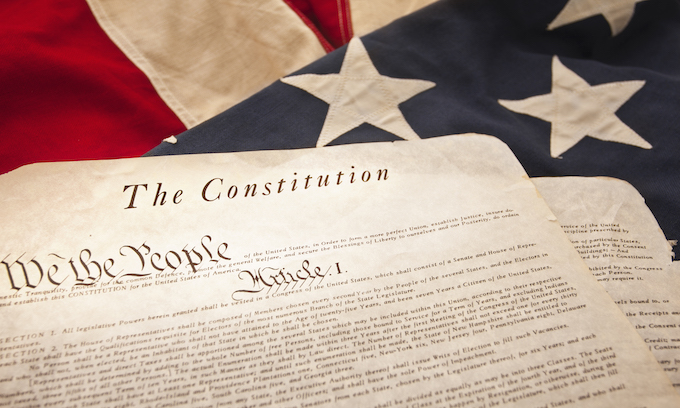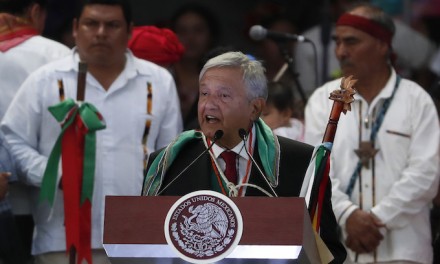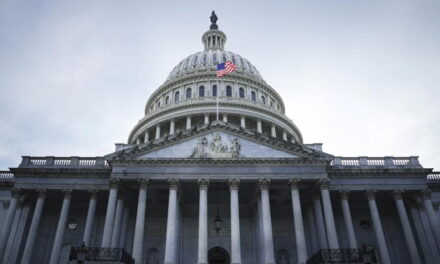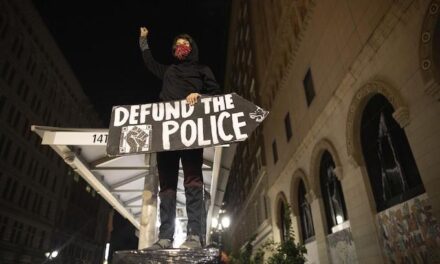Three of San Diego County’s public universities were flagged by a free speech advocacy group that warned the campuses have policies that are too subjective and ambiguous to meet First Amendment standards.
The Foundation for Individual Rights in Education, a Philadelphia-based group commonly referred to as FIRE, gave San Diego State University, University of California San Diego and California State University San Marcos “yellow light” ratings, meaning the institutions have “at least one ambiguous policy that too easily encourages administrative abuse and arbitrary application,” according to the organization’s website.
FIRE assessed the speech policies of 471 American colleges, finding 64 deserve “yellow light” ratings of warning, while 25 percent received the lowest ratings — “red lights” — and 11 percent were OK, with “green light” ratings.
Although none of the San Diego area schools explicitly prohibit free speech, their policies are too subjective to earn a “green light” rating, said FIRE Senior Program Manager Laura Beltz.
She said many schools don’t know their policies are problematic.
“We’re looking for these policies to be revised so they can meet those First Amendment standards,” Beltz said. “A lot of these schools don’t even know these policies are out there.”
For instance, UC San Diego and the others had problems with policies designed to curb harassment on campus, she said.
UC San Diego’s Office for the Prevention of Harassment and Discrimination was flagged for a portion of its Frequently Asked Questions webpage. The section includes examples of things that would be considered harassment, such as “anti-Semitic or Islamophobic graffiti” or “repeatedly sending unwelcome emails, text messages or photos of a sexual nature.”
Beltz said these examples may not meet the U.S. Constitutional standard for harassment on their own.
The Constitution states harassment must be “severe, pervasive and objectively offensive,” she said.
Belz said UC San Diego should clarify its policy. She said the policy lacks the “objectively offensive” component that the Constitution uses to classify harassment. She also said the university’s use of the phrase “and/or” in “severe and/or pervasive” in its policy would be incorrect because harassment must be severe and pervasive, not one or the other.
Although the policy is only off by two words, institutions can never be too careful, said David Loy, legal director of the San Diego American Civil Liberties Union.
Misapplication of ambiguous policies is a real issue, he said, where vagueness in policy wording gives administrators too much leeway to use campus policies to prohibit protected forms of speech.
“The problem is having something on paper that people who are not lawyers wouldn’t understand,” Loy said.
SDSU had seven policies flagged, most of which pertain to student conduct and sexual harassment.
One of those SDSU policies prohibits “abusive physical and verbal behavior, and threats of physical abuse,” within campus residence halls.
Beltz said the issue has to do with the term “abusive,” which has been ruled by the Supreme Court as being too vague and potentially encompassing protected speech. The 1972 case, Gooding v. Wilson, ruled a Georgia statue prohibiting “abusive language” was too broad to meet First Amendment standards.
“Obviously colleges need to have harassment policies and they need to respond to the harassment of students …. It’s that this policy is written so broadly that it restricts protected speech,” Beltz said.
The latest updates to FIRE’s report come just a few months after SDSU launched an online free speech portal for students.
The portal allows students to research free speech guidelines to better understand their rights. It also features a page that answers common questions pertaining to expression on campus.
In an emailed statement, the university said this effort is indicative of how highly the campus values the protection of free speech.
“At San Diego State University, we are committed to ensuring the free speech rights of members of our campus community are met, and that people are also well informed of those rights,” the statement said.
“SDSU administrators and the University Senate’s Freedom of Expression Committee continually review free speech policies and activities from universities across the country to ensure that we at SDSU are upholding said free speech protections.”
SDSU junior Linda Clark said she feels comfortable speaking out on campus but that ambiguity in free speech policies is a concern.
“Things could definitely be misinterpreted,” Clark said. “Any policy can be misinterpreted; just look at the Bible or any other sort of text.”
Biology senior Alexis Biltz agreed, saying SDSU is welcoming of student voices. She said she is not concerned about the nuances of campus policies.
“I don’t really have any concerns about (SDSU), so I don’t look into that stuff,” Blitz said.
In an email statement, UCSD said it is focused on maintaining free speech on campus.
“UC San Diego appreciates and agrees with strong support for free speech on campus,” the statement reads. “We are constantly reviewing and revising our policies to improve them in accordance with best practices and legal requirements.”
Cal State San Marcos, which also was mentioned in the report, said its campus supports the free expression of ideas on campus.
“CSUSM embraces freedom of expression as a cornerstone of our democracy and essential to the educational process,” its statement reads. “We also understand we have a special obligation to serve as a place where students can confront and examine new ideas, and learn from the perspectives of others.”
___
(c)2019 The San Diego Union-Tribune
Visit The San Diego Union-Tribune at www.sandiegouniontribune.com
Distributed by Tribune Content Agency, LLC.
—-
This content is published through a licensing agreement with Acquire Media using its NewsEdge technology.



















Recent Comments